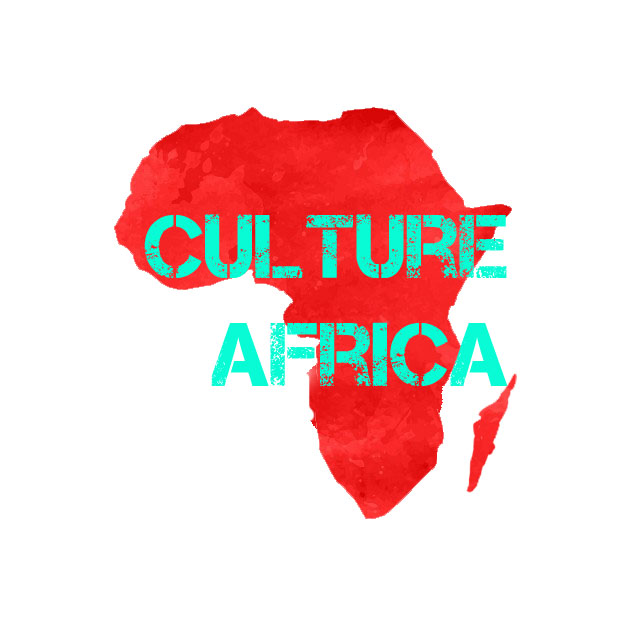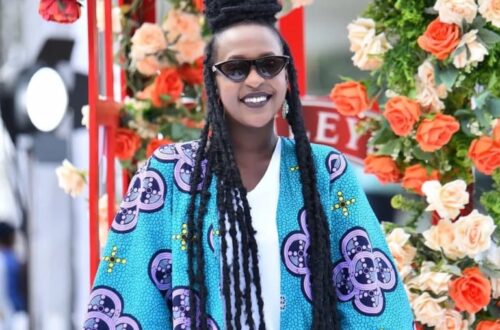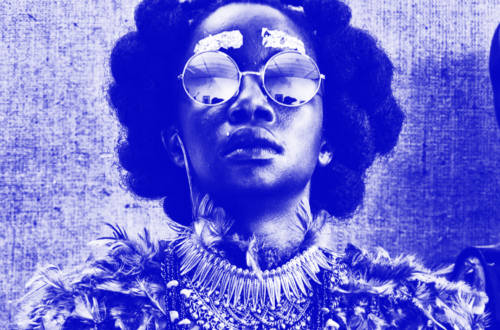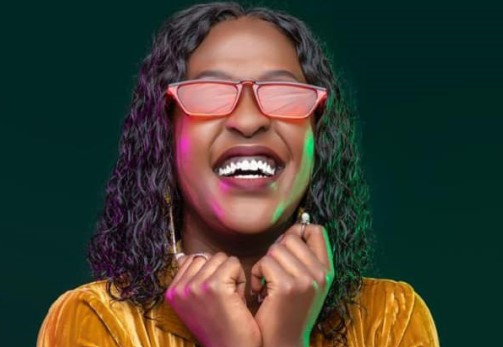
Uganda’s Queen of Afrosoul: An Interview with Music Star Lilian Mbabazi_english/german
Uganda’s Queen of Afrosoul: An Interview with Music Star Lilian Mbabazi_english/german
Lilian Mbabazi is a Ugandan artiste of Rwandan descent best remembered for her time in the girl group Blu*3. Now a fully fledged solo artiste, with a new EP out, she recently sat down with Culture Africa Founder, Hans Hofele, with additional questions from Staff Writer, Lorna Likiza, for an interview on her music, style and future plans.
FÜR DIE DEUTSCHE VERSION BITTE NACH UNTEN SCROLLEN
Hans Hofele: The One is your new EP, jam packed with Afrosoul. Can you say something about it? What do you sing about?
Lilian Mbabazi: I was away for nearly six years from the music industry. I mainly worked with my band doing Live Performances. But at the end of last year, we wanted to put out new music because there was a growing demand for it.

HH: People love you especially for the sensitive, elegiac songs, like Memories with Apass, Yegwe Weka or Simple Girl. The new EP fits in wonderfully with that. Is that exactly what makes you tick? To make feelings audible, an art that is not given to the normal listener?
LM: I am a very passionate person especially when it comes to music and also in life. I am passionate in everything I do. The music in particular, I have to connect with it. Somebody else should also connect with it. If I do not connect with it, nobody will. I sing with my heart, with my mind, literally everything. Somebody can easily feel this is about love, about sorrows, about joy, every emotion I have can be put in songs.
Lorna Likiza: What influenced your choice of music genre?
LM: I like music that speakes to the soul. That‘s why I call it Afrosoul. I like music that takes me on a journey. I can do different genres of music but when it comes to my personal music, even if somebody else is singing it, i can tell it feels a certain way. What influences me is the existing gap. The other thing is, it‘s easier for people to connect with you emotionally and mentally if you are singing about something that’s relatable to their own experiences. It‘s not an easy thing to describe because it needs a lot of your mind and your soul. I feel that gap. People don‘t have to be in a club to experience good music. They can drive in a car or sit at home on a Sunday and still enjoy the music.
HH: I have watched some of your online concerts. Did these concerts get you through the pandemic? That was a particularly tough period for many worldwide.
LM: It was not an easy time especially for us as musicians. Entertainment is one of the things that was really affected in Uganda. This is how we make our money. Even when they released everything, the entertainment sector remained in lockdown. It took us two and a half years to come back. During the pandemic, we decided to find a way to entertain our people. We settled on online shows where we performed with a small team, put it online and had it sponsored.
What influences me is the existing gap. The other thing is, it‘s easier for people to connect with you emotionally and mentally if you are singing about something that’s relatable to their own experiences. It‘s not an easy thing to describe because it needs a lot of your mind and your soul. I feel that gap. People don‘t have to be in a club to experience good music. They can drive in a car or sit at home on a Sunday and still enjoy the music.
HH: When you perform Live, I noticed your delivery is stronger and much more powerful as an artiste which I really liked. Is that a new side of you that many people did not know about? Are you most comfortable doing Live Music?
LM: I used to be in a girl group before, Blue*3, but when I started my solo career, I had to find out who I was. One thing I absolutely love is Live Music. It‘s something I started doing in 2011.
I got my band together and we started learning to improve our delivery. Live Performances are my absolute favourite. Everybody knows, if it comes to a Live Performance, your girl will be there! I am always able to create and perform my songs differently from how they sound on radio. It also brings something new for me. Additionally, its an easy way to connect with the audience and I hope I can bring that same energy to Germany then you get to see it!
HH: There are also the duets. Are duets equally important to you and another way of supporting each other as artistes?
LM: It‘s more of a vibe and a feeling you share with the other artiste. In the music industry, you soon find out that not every collaboration works. But if it does, it works very well. Over time, I have wisened and learned that I have to pick my collaborations very carefully and especially with the person I want to work with. Nonetheless, I am always an open artiste and as a result, many artists love to work with me. I never feel pressured to work with everybody though. I mostly just give it a shot.

HH: On the EP, the songs are more restrained, more pop-heavy and balanced. Do you enjoy working in the studio?
LM: Normally, each thing leads to the other. If you don‘t put that required energy into the studio work, you don‘t have material to perform live. Everything is different depending also on the producers. Some are easy and some can be difficult. You have to deal with that also. I would say I enjoy the process. It‘s still work, but that‘s what I do. Its never tiresome. On a Live Performance you use the song and you recreate it on stage with the band. Everything is exciting in its own way.
HH: I watched a show with you, Lydia and Jasmine Unplugged. Is that the true essence of musicality, reduced to the essentials?
LM: It was special. We are three different artistes and the whole point of it was to give something different on the online performance.
Lorna Likiza: The Nigerian Afrobeat has since become a worldwide sensation even though the artistes often sing in pidgin English and other Nigerian dialects, that the rest of the world does not understand. Do you feel there’s something Nigeria is doing differently that other African countries need to emulate in terms of music, and is there really hope for the rest of the African musicians on the world stage because clearly, language barrier does not matter if the music is good?
LM: Nigeria is a very well organized industry in terms of music. They have the corporates there, they have the numbers. If you compare the numbers of artistes in Nigeria with Uganda, there’s a big difference. They have more access to great producers and great publishers. There is a structure and a system and they have an identity. You realize very fast that this is Nigerian. We don‘t have that in Uganda. You find any style here. It‘s a mixture of everything. A Ugandan song keeps you here in Uganda. If we would be more organized here, it would help every musician. The Nigerians are not doing things differently per se, when compared to other African artistes, rather, they have access to better opportunities in terms of producing and copyright. A huge topic by the way, because in Uganda, we have a high rate of pirating that does not help the industry. I see lots of talent here and they deserve the opportunities too.
HH: Please tell me about your development and approach to music. Did you start singing early? In the choir, perhaps? Were other members of your family also musical? What gave you the kick to start a music career?
LM: When I was growing up, I listened to Whitney Houston and Mariah Carey a lot and I could see myself doing it someday. My family was not too sure about it at first because music never looked like a career in Africa. Something which could be a source of income. For a time, I actually didnt know that I could sing. I was quite shy! I was in the church choir and school choir, of course. With the singing I did there I started gaining some confidence. That brought me to the Coca Cola Pop Star Competition and it worked!
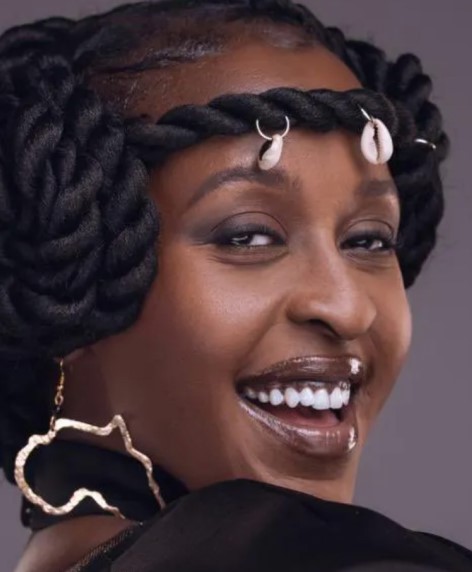
HH: Your performance In the Coca Cola Pop Star Competition is still very inspiring to many, including our Staff Writer, Lorna. How was the experience like for you when you emerged among the winners? Then the years as part of a girl group, Blue*3. Was that an adventure, fun or also a lot of remote control by producers and managers?
LM: I will not call it a cage. We had our ups and downs. In this group, we had been thrown together coming from different walks of life. We had to deal with our different characters which also entailed who is doing what and in which role. But we knew, if we are serious about this, it would be very beneficial to us. We learnt a lot in terms of performing and in terms of singing. We influenced each other positively as well.
Over time, I have wisened and learned that I have to pick my collaborations very carefully and especially with the person I want to work with. Nonetheless, I am always an open artiste and as a result, many artists love to work with me. I never feel pressured to work with everybody though. I mostly just give it a shot.
HH: Your solo career was then very successful and you were on “City Radio” and “Capital FM”. Was that also a confirmation of your musical power and creativity? Describe how you see it today.
LM: The group separated because of several issues. It was sad, when the group broke up, to be honest. we had a very good thing going. I created a band. A live band; Lilian and the Sundowners. My solo career helped me to grow as an artist. Now it was me, Lilian, who had to reach out and connect to the people.
HH: Some of your songs are in a mix of Luganda and English. It changes in the middle of the song Never Letting Go. Does that also show the reality in Uganda? How important is language to you?
LM: I sing a lot in English and I also have songs in Luganda. Both from different songwriters. I would also sing in German (laughs). Luganda helps me to reach another audience I wouldn‘t normally reach if I was singing in English. I enjoy singing in Luganda too because I learn it better when I sing in it. But mostly it depends on the song and the vibe of the song. And while I sing mostly in English, I also do so in French and Swahili.
LL: The Kenyan market is a special market which is not easily convinced. Is that the case with the Ugandan market when it comes to music or different? Do you feel fully supported by your own country in your musical journey?
LM: Any industry is different. Uganda is also a quite tough market! I have the advantage that I started my career way earlier than most musicians in Uganda at the moment. Its very tough for upcoming musicians to get the airplay they need. Your music has to be played on the radio and your music videos aired on TV. That being said, I believe we are on the path to change. We have to support everybody. You can‘t only support yourself. There is enough room for all of us to build a better industry.

HH: Do the new possibilities of promoting on social media only falsely appear to create more chances, or is that a fact?
LM: Social media plays a big role. Songs are going viral if they are shared on TikTok and on Instagram. It gives the artist a big channel. The difference comes when the artist has to do Live Performances and sing in front of an audience. So, I think that hype is wrong. People always have an expectation for you to sound the same live as you sound on media. Luckily for me and my generation, we had the time to rehearse and develop our live performances. I am a vocalist, this is what I am going to do. So I have to work on it and acquire new tricks to my voice. The new kids have the numbers. They have everything. But for some, when it comes to executing it on stage it gets a little bit dull.
HH: What are your future plans going forth? Is Europe an agenda for you? We have lots of festivals here.
LM: After pushing the EP, we have a plan for concerts. A new video is just finished and coming out and lined up TV shows. I am soon going to Abu Dhabi. I would also love to grace some festivals in Europe.
Lilian Mbabazi is on Twitter @lmbabazi, on Instagram @lilianmbabazi, on Tiktok @mizzliliane and on Facebook as Lilian Mbabazi
DEUTSCHE VERSION
UGANDAS KÖNIGIN DES AFROSOUL: EIN INTERVIEW MIT LILIAN MBABAZI
Lilian Mbabazi ist eine ugandische Künstlerin ruandischer Abstammung, die vor allem durch ihre Zeit in der Girlgroup Blu*3 bekannt ist. Sie ist eine der bekanntesten Stimmen Ugandas und hat gerade eine neue EP herausgebracht. Den Fragen von Hans Hofele und Lorna Likiza hat sie sich in ihrer Heimat Kampala gestellt. Wir sprachen mit ihr per Zoom inmitten der Produktion eines neuen Musikvideos.
HH: The One ist deine neue EP, die vollgepackt ist mit Afrosoul. Kannst du etwas dazu sagen? Worüber singen Sie?
LM: Ich war fast sechs Jahre lang nicht in der Musikbranche tätig. Ich habe hauptsächlich mit meiner Band gearbeitet und Live-Auftritte gemacht. Aber Ende letzten Jahres wollten wir neue Musik herausbringen, weil es eine wachsende Nachfrage danach gab.
HH: Die Leute lieben euch vor allem für die gefühlvollen, elegischen Songs, wie Memories with Apass, Yegwe Weka oder Simple Girl. Die neue EP passt da wunderbar dazu. Ist es genau das, was euch antreibt? Gefühle hörbar zu machen, eine Kunst, die dem normalen Hörer nicht gegeben ist?
LM: Ich bin ein sehr leidenschaftlicher Mensch, besonders wenn es um Musik geht und auch im Leben. Ich bin in allem, was ich tue, leidenschaftlich. Vor allem bei der Musik muss ich mich mit ihr verbinden. Jemand anderes sollte sich auch mit ihr identifizieren können. Wenn ich mich nicht mit ihr verbinde, tut es niemand. Ich singe mit meinem Herzen, mit meinem Verstand, buchstäblich alles. Jemand kann leicht spüren, dass es um Liebe geht, um Kummer, um Freude, jede Emotion, die ich habe, kann in Songs ausgedrückt werden.
Lorna Likiza: Was hat dich bei der Wahl deines Musikgenres beeinflusst?
LM: Ich mag Musik, die die Seele anspricht. Deshalb nenne ich sie Afrosoul. Ich mag Musik, die mich auf eine Reise mitnimmt. Ich kann verschiedene Musikgenres machen, aber wenn es um meine persönliche Musik geht, kann ich sagen, dass sie sich auf eine bestimmte Art und Weise anfühlt, auch wenn jemand anderes sie singt. Was mich beeinflusst, ist die vorhandene Lücke. Außerdem ist es für die Leute leichter, sich emotional und geistig mit dir zu verbinden, wenn du über etwas singst, das mit ihren eigenen Erfahrungen in Verbindung steht. Es ist nicht einfach, das zu beschreiben, weil es viel von deinem Verstand und deiner Seele erfordert. Ich spüre diese Kluft. Die Leute müssen nicht in einem Club sein, um gute Musik zu erleben. Sie können mit dem Auto fahren oder sonntags zu Hause sitzen und trotzdem die Musik genießen.
HH: Ich habe mir einige Ihrer Online-Konzerte angesehen. Haben diese Konzerte Ihnen geholfen, die Pandemie zu überstehen? Das war ja eine besonders harte Zeit für viele Menschen weltweit.
LM: Es war keine leichte Zeit, besonders für uns Musiker. Die Unterhaltung ist eines der Dinge, die in Uganda wirklich betroffen waren. Auf diese Weise verdienen wir unser Geld. Selbst als sie alles freigaben, blieb der Unterhaltungssektor stillgelegt. Es hat zweieinhalb Jahre gedauert, bis wir zurückkamen. Während der Pandemie beschlossen wir, einen Weg zu finden, unsere Leute zu unterhalten. Wir entschieden uns für Online-Shows, bei denen wir mit einem kleinen Team auftraten, die wir online stellten und sponsern ließen.
Was mich beeinflusst, ist die bestehende Lücke. Außerdem ist es für die Menschen leichter, sich emotional und mental mit dir zu verbinden, wenn du über etwas singst, das mit ihren eigenen Erfahrungen in Verbindung steht. Es ist nicht einfach, das zu beschreiben, weil es viel von deinem Verstand und deiner Seele erfordert. Ich spüre diese Kluft. Die Leute müssen nicht in einem Club sein, um gute Musik zu erleben. Sie können mit dem Auto fahren oder sonntags zu Hause sitzen und trotzdem die Musik genießen.
HH: Bei deinen Live-Auftritten ist mir aufgefallen, dass du als Künstler stärker und kraftvoller rüberkommst, was mir sehr gefallen hat. Ist das eine neue Seite von dir, die viele Leute noch nicht kannten? Fühlst du dich bei Live-Musik am wohlsten?
LM: Ich war vorher in einer Girlgroup, Blue*3, aber als ich meine Solokarriere begann, musste ich herausfinden, wer ich bin. Eine Sache, die ich absolut liebe, ist Live-Musik. Das ist etwas, womit ich 2011 angefangen habe.
Ich habe meine Band zusammengetrommelt und wir haben angefangen zu lernen, wie wir unseren Auftritt verbessern können. Live-Auftritte sind mein absoluter Favorit. Jeder weiß: Wenn es zu einer Live-Performance kommt, ist dein Mädchen dabei! Ich bin immer in der Lage, meine Songs anders zu gestalten und zu performen, als sie im Radio klingen. Das bringt auch etwas Neues für mich. Außerdem ist es ein einfacher Weg, mit dem Publikum in Kontakt zu treten, und ich hoffe, dass ich diese Energie auch nach Deutschland bringen kann, damit ihr sie sehen könnt!

HH: Es gibt auch die Duette. Sind Duette für dich genauso wichtig und eine weitere Möglichkeit, sich gegenseitig als Künstler zu unterstützen?
LM: Es ist mehr eine Stimmung und ein Gefühl, das man mit dem anderen Künstler teilt. In der Musikindustrie stellt man schnell fest, dass nicht jede Zusammenarbeit funktioniert. Aber wenn sie funktioniert, dann funktioniert sie sehr gut. Mit der Zeit bin ich klüger geworden und habe gelernt, dass ich mir meine Kollaborationen sehr sorgfältig aussuchen muss, vor allem mit der Person, mit der ich zusammenarbeiten möchte. Nichtsdestotrotz bin ich immer ein offener Künstler, und deshalb arbeiten viele Künstler gerne mit mir zusammen. Ich fühle mich aber nie unter Druck gesetzt, mit jedem zu arbeiten. Meistens gebe ich ihnen einfach eine Chance.
HH: Auf der EP sind die Songs zurückhaltender, poplastiger und ausgewogener. Genießt du die Arbeit im Studio?
LM: Normalerweise führt das eine zum anderen. Wenn man nicht die nötige Energie in die Studioarbeit steckt, hat man kein Material, das man live spielen kann. Alles ist unterschiedlich und hängt auch von den Produzenten ab. Manche sind einfach und manche können schwierig sein. Auch damit muss man zurechtkommen. Ich würde sagen, ich genieße den Prozess. Es ist immer noch Arbeit, aber das ist es, was ich tue. Es ist nie ermüdend. Bei einer Live-Performance verwendest du den Song und stellst ihn mit der Band auf der Bühne nach. Alles ist auf seine eigene Art und Weise aufregend.
HH: Ich habe eine Show mit dir, Lydia und Jasmine Unplugged gesehen. Ist das die wahre Essenz der Musikalität, reduziert auf das Wesentliche?
LM: Es war etwas Besonderes. Wir sind drei verschiedene Künstlerinnen, und der Sinn der Sache war es, bei der Online-Performance etwas anderes zu bieten.
LL: Der nigerianische Afrobeat ist inzwischen zu einer weltweiten Sensation geworden, obwohl die Künstler oft in Pidgin-Englisch und anderen nigerianischen Dialekten singen, die der Rest der Welt nicht versteht. Hast du das Gefühl, dass Nigeria etwas anders macht als andere afrikanische Länder, und gibt es wirklich Hoffnung für den Rest der afrikanischen Musiker auf der Weltbühne, weil die Sprachbarriere offensichtlich keine Rolle spielt, wenn die Musik gut ist?
LM: Nigeria ist eine sehr gut organisierte Musikindustrie. Sie haben die Unternehmen dort, sie haben die Zahlen. Wenn man die Zahl der Künstler in Nigeria mit der in Uganda vergleicht, ist das ein großer Unterschied. Sie haben mehr Zugang zu großen Produzenten und Verlegern. Es gibt eine Struktur und ein System, und sie haben eine Identität. Man merkt sehr schnell, dass das nigerianisch ist. Das haben wir in Uganda nicht. Man kann hier jeden Stil finden. Es ist eine Mischung aus allem. Ein ugandisches Lied hält dich hier in Uganda. Wenn wir hier mehr organisiert wären, würde das jedem Musiker helfen. Die Nigerianer machen die Dinge nicht per se anders als andere afrikanische Künstler, sondern sie haben Zugang zu besseren Möglichkeiten, was die Produktion und das Urheberrecht angeht. Das ist übrigens ein großes Thema, denn in Uganda haben wir eine hohe Raubkopierquote, was der Branche nicht hilft. Ich sehe hier viele Talente, und sie verdienen auch diese Chancen.

HH: Bitte erzähle mir etwas über deinen Werdegang und deinen Zugang zur Musik. Haben Sie früh angefangen zu singen? Vielleicht im Chor? Waren andere Mitglieder Ihrer Familie auch musikalisch? Was gab Ihnen den Anstoß, eine Musikkarriere zu starten?
LM: Als ich aufwuchs, hörte ich viel Whitney Houston und Mariah Carey und konnte mir vorstellen, eines Tages selbst zu singen. Meine Familie war anfangs nicht sehr überzeugt davon, weil Musik in Afrika nie als Beruf in Frage kam. Etwas, das eine Einkommensquelle sein könnte. Eine Zeit lang wusste ich gar nicht, dass ich singen kann. Ich war ziemlich schüchtern! Ich war natürlich im Kirchenchor und im Schulchor. Durch das Singen dort gewann ich allmählich an Selbstvertrauen. Das brachte mich zum Coca Cola Pop Star Wettbewerb und es hat geklappt!
HH: Dein Auftritt beim Coca-Cola-Popstar-Wettbewerb ist für viele immer noch sehr inspirierend, auch für unsere Redakteurin Lorna. Wie war die Erfahrung für dich, als du unter den Gewinnern warst? Dann die Jahre als Teil einer Girlgroup, Blue*3. War das ein Abenteuer, Spaß oder auch die Zwänge durch Produzenten und Manager?
LM: Ich würde es nicht als Käfig bezeichnen. Wir hatten unsere Höhen und Tiefen. In dieser Gruppe wurden wir zusammengewürfelt, weil wir aus verschiedenen Lebensbereichen kamen. Wir mussten uns mit unseren unterschiedlichen Charakteren auseinandersetzen, was auch bedeutete, wer was tut und welche Rolle er spielt. Aber wir wussten, wenn wir das ernsthaft betreiben, würde es uns sehr viel bringen. Wir haben viel gelernt, was die Darstellung und den Gesang angeht. Wir haben uns auch gegenseitig positiv beeinflusst.
Mit der Zeit bin ich klüger geworden und habe gelernt, dass ich mir meine Kooperationen sehr sorgfältig aussuchen muss, vor allem mit der Person, mit der ich zusammenarbeiten möchte. Nichtsdestotrotz bin ich immer ein offener Künstler, und deshalb arbeiten viele Künstler gerne mit mir zusammen. Ich fühle mich aber nie unter Druck gesetzt, mit jedem zu arbeiten. Meistens gebe ich ihnen einfach eine Chance.
HH: Deine Solokarriere war damals sehr erfolgreich und du warst bei “City Radio” und “Capital FM” zu hören. War das auch eine Bestätigung für deine musikalische Kraft und Kreativität? Beschreibe, wie du das heute siehst.
LM: Die Gruppe hat sich aus verschiedenen Gründen getrennt. Es war traurig, als sich die Gruppe auflöste, um ehrlich zu sein. Wir hatten eine sehr gute Sache am Laufen. Ich habe eine Band gegründet. Eine Live-Band: Lilian and the Sundowners. Meine Solokarriere half mir, als Künstler zu wachsen. Jetzt war es an mir, Lilian, die Leute zu erreichen und mit ihnen in Kontakt zu treten.
HH: Einige Ihrer Lieder sind eine Mischung aus Luganda und Englisch. Das ändert sich in der Mitte des Songs Never Letting Go. Zeigt das auch die Realität in Uganda? Wie wichtig ist die Sprache für Sie?
LM: Ich singe viel auf Englisch und ich habe auch Lieder in Luganda. Beides von verschiedenen Songwritern. Ich würde auch auf Deutsch singen (lacht). Luganda hilft mir, ein anderes Publikum zu erreichen, das ich normalerweise nicht erreichen würde, wenn ich auf Englisch singen würde. Es macht mir auch Spaß, in Luganda zu singen, weil ich es besser lerne, wenn ich es singe. Aber meistens hängt es von dem Lied und der Stimmung des Liedes ab. Ich singe zwar hauptsächlich auf Englisch, aber auch auf Französisch und Suaheli.

LL: Der kenianische Markt ist ein besonderer Markt, der nicht leicht zu überzeugen ist. Ist das bei dem ugandischen Markt auch der Fall, wenn es um Musik geht, oder ist das anders? Fühlen Sie sich auf Ihrem musikalischen Weg von Ihrem eigenen Land voll unterstützt?
LM: Jede Branche ist anders. Uganda ist auch ein ziemlich harter Markt! Ich habe den Vorteil, dass ich meine Karriere viel früher begonnen habe als die meisten Musiker in Uganda. Es ist sehr schwer für aufstrebende Musiker, die nötige Aufmerksamkeit zu bekommen. Ihre Musik muss im Radio gespielt werden und ihre Musikvideos müssen im Fernsehen ausgestrahlt werden. Trotzdem glaube ich, dass wir auf dem Weg der Veränderung sind. Wir müssen alle unterstützen. Man kann nicht nur sich selbst unterstützen. Es gibt genug Platz für uns alle, um eine bessere Industrie aufzubauen.
HH: Scheinen die neuen Möglichkeiten der Werbung in den sozialen Medien nur fälschlicherweise mehr Chancen zu schaffen, oder ist das eine Tatsache?
LM: Soziale Medien spielen eine große Rolle. Songs gehen viral, wenn sie auf TikTok und Instagram geteilt werden. Das gibt dem Künstler einen großen Kanal. Der Unterschied besteht darin, dass der Künstler live auftreten und vor einem Publikum singen muss. Ich denke also, dass dieser Hype falsch ist. Die Leute haben immer die Erwartung, dass man live genauso klingt wie in den Medien. Zum Glück für mich und meine Generation hatten wir die Zeit, zu proben und unsere Live-Auftritte zu entwickeln. Ich bin ein Sänger, das ist es, was ich tun werde. Also muss ich daran arbeiten und mir neue Tricks für meine Stimme aneignen. Die neuen Kids haben die Nummern. Sie haben alles. Aber für einige wird es ein bisschen langweilig, wenn es darum geht, es auf der Bühne auszuführen.
HH: Wie sehen deine Zukunftspläne aus? Steht Europa für dich auf der Agenda? Wir haben hier eine Menge Festivals.
LM: Nachdem wir die EP veröffentlicht haben, haben wir einen Plan für Konzerte. Ein neues Video ist gerade fertig und kommt heraus und wir haben TV-Shows geplant. Ich werde bald nach Abu Dhabi gehen. Ich würde auch gerne einige Festivals in Europa beehren.
Lilian Mbabazi ist auf Twitter @lmbabazi, auf Instagram @lilianmbabazi, auf Tiktok @mizzliliane und auf Facebook als Lilian Mbabazi
copyright: cultureafrica 2023//all photos courtesey of lilian mbabazi


